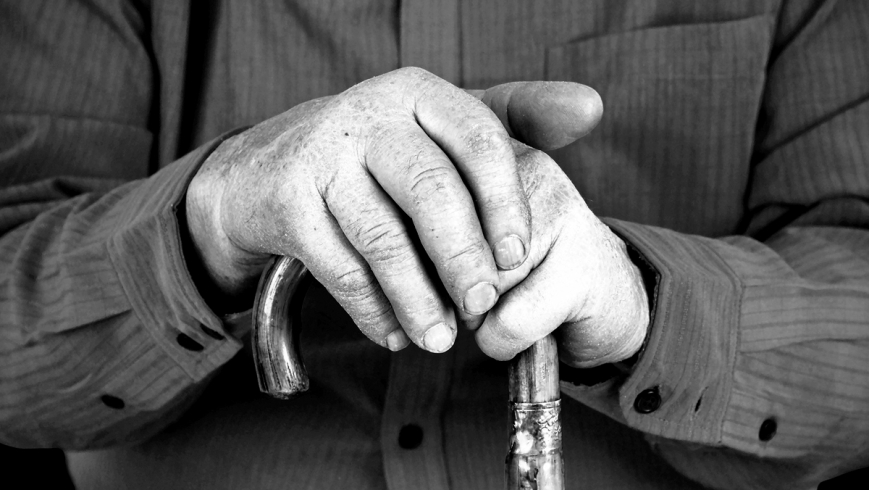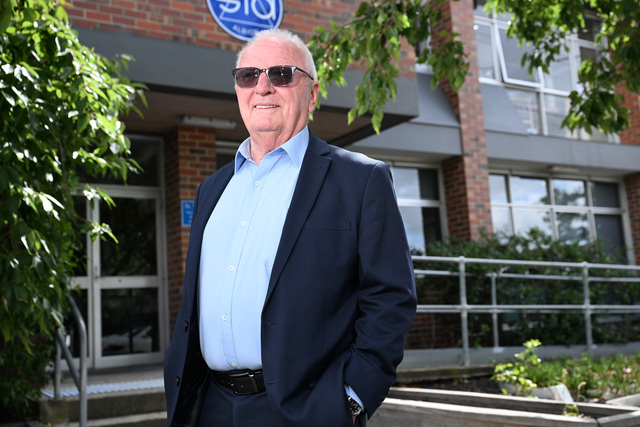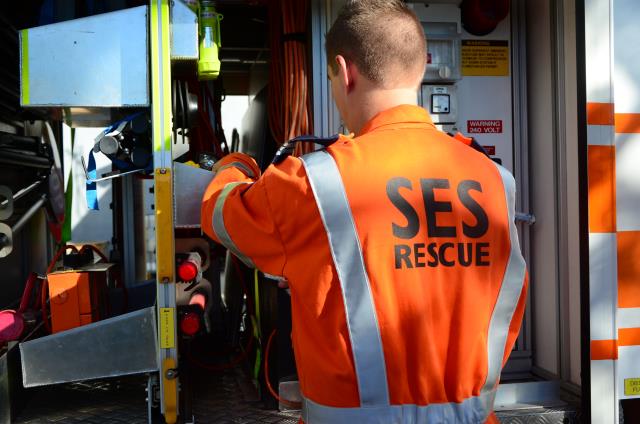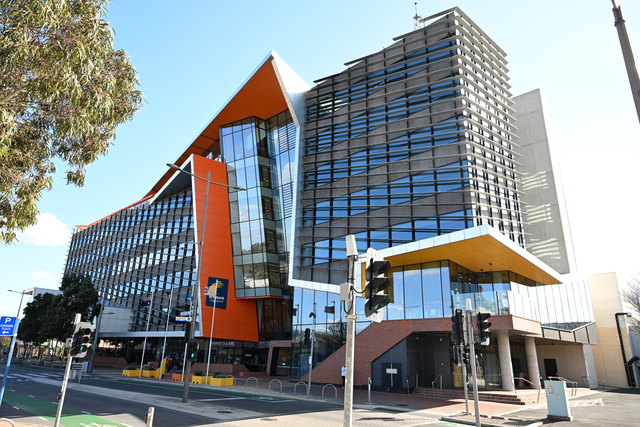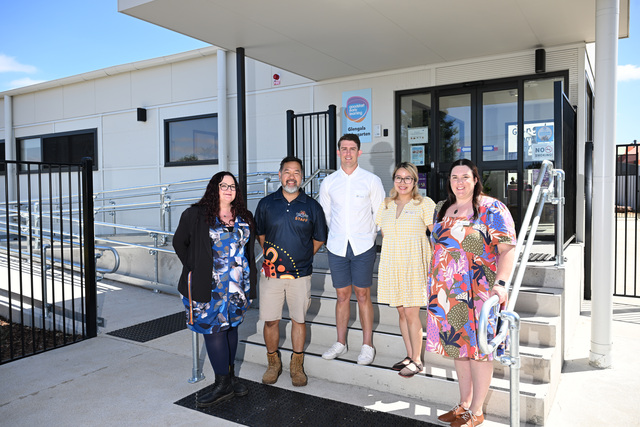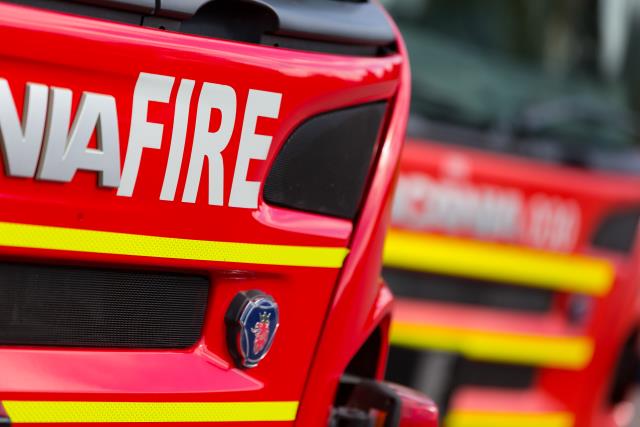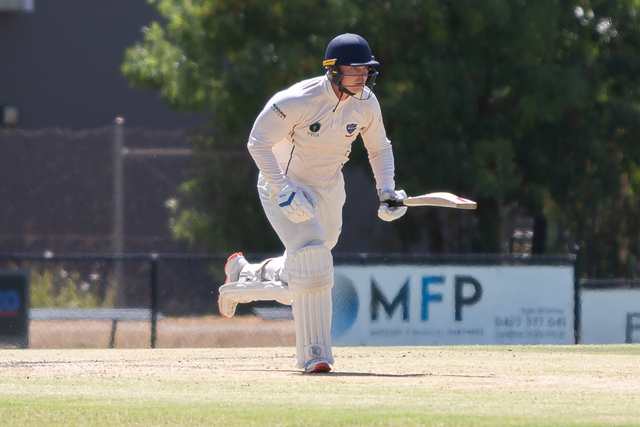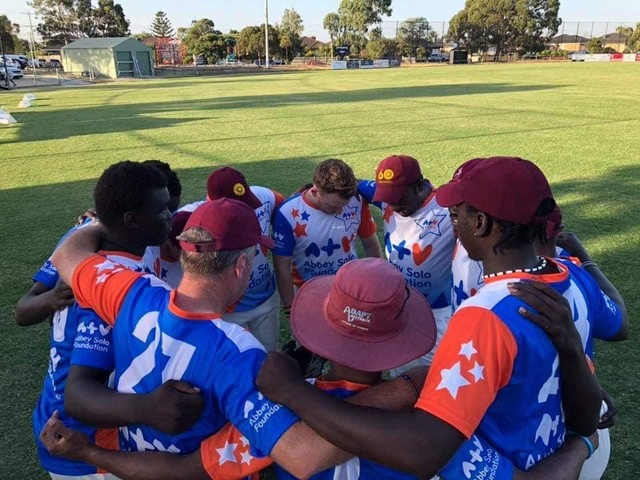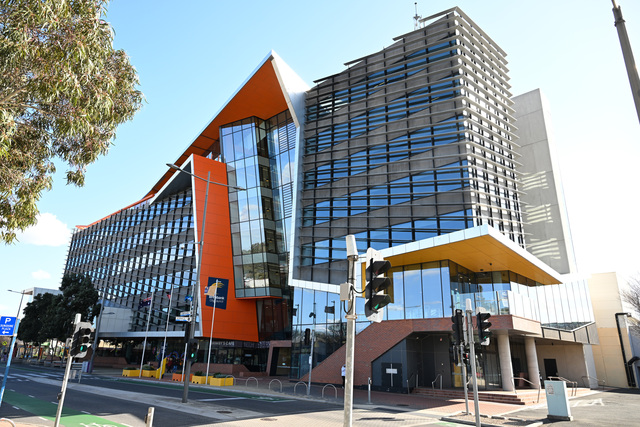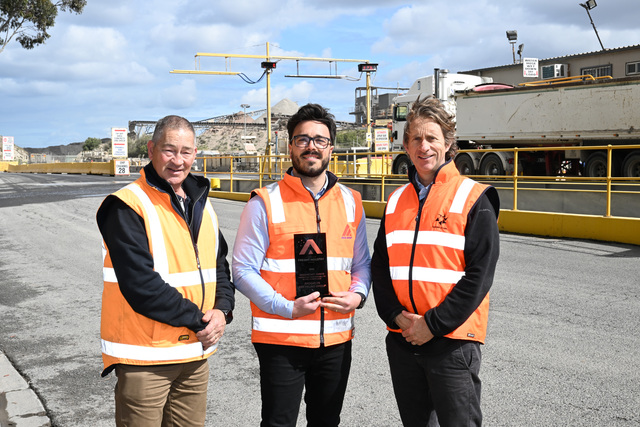It was bucketing down. An old, old man bent like a question mark started to cross the road. The lights changed before he even reached the middle of the road. Cars began to roll impatiently forward: a horn beeped.
My cheap fold-up umbrella offered little to no protection. Rivulets ran off his bald pate, down the front of his Amnesty International T-shirt and the ridges of his black corduroy pants – a drowned man walking. We finally reached the curb and shelter where I fully intended to leave him, but instead found myself asking if he needed a lift home.
“Yes,” he said. His name was Maurice. Why are you out in this weather, Maurice?
“My watch stopped and I needed a new one … And the son with whom I live opened the letterbox and found all these bills stamped with red and told me to pay them. There are always bills stamped with red. It is one of the inexplicable occurrences of a life filled with inexplicable occurrences.”
The latest is that this son (one of six children Maurice fathered) plans to “sell the house in which we live and move in with his lady love … I don’t know where I will go”.
There are people who can help, I told him, although I wasn’t sure who. We reached the house. I helped him from car to curb and drove away. Two days later, it was raining gently. An old, old man was crossing the road – this time wearing a weatherproof jacket. Can I give you a lift, Maurice?
“Yes,” he said. Maurice is 90, a World War II veteran, published poet and playwright who also wrote under the names Wu Ming Shi and Mehmet al Assad. His abusive father instilled in him a love of justice by showing him none. He has spent his life as a champion of the weak and defenceless, winning a major poetry award for human rights. A black belt in jiu jitsu, he also used to teach the elderly and handicapped self-protection, but now he can barely ward off the rain.
We reached the house. Maurice climbed out of the car, onto the curb and then fell backwards. Crumpled in the gutter I could see his zip-up shoes were undone and splitting at the seams, offering no support or stability.
“I can’t reach to do them up,” he explained. While he took stock of his limbs, I zipped up both sides of his shoes and then helped him to his feet. With painful slowness we inched along the footpath, down the drive past the car owned by his son, to the house owned by his son. Maurice doesn’t ask me inside.
I find Maurice’s best-known work The Nailing of the Right Hand in the library. He is commended, by former fellow Deakin academic and poet Judith Rodriguez, as a “poet of a rare kind. His poems treat mankind stripped to the condition of Lear on the waste heath… they are among the most naked utterances of heart and conscience that I know”.
True! The book is dedicated: “To my friends – my children.” It’s the small hours before it dawns on me. I’m horrified. Maurice would not have been able to undo his shoes.

